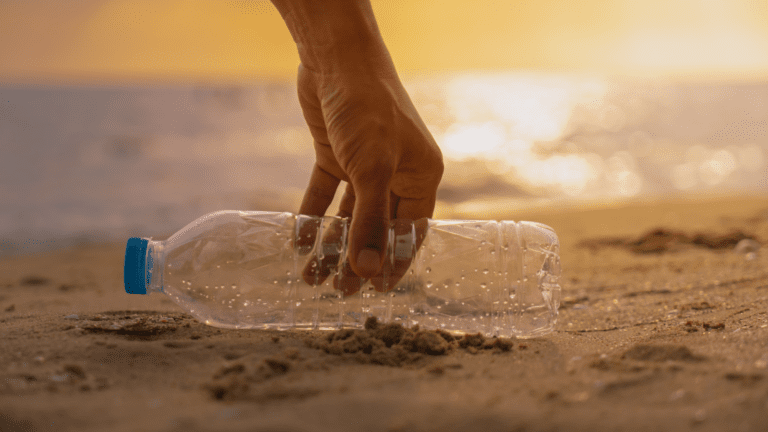Let’s talk trash

We have a waste problem. Each year, Australians generate around 76 million tonnes of waste and spend over $17 billion to deal with it.
Waste and inefficient waste management is uneconomical and contributes to climate change, pollution, and loss of biodiversity and nature.
To address the increasing global problem of waste, the UN International Day of Zero Waste, March 30, promotes and encourages sustainable production and consumption and a move towards a circular economy: continued reuse and recycle of products rather than send them to landfill only to extract new resources to produce more.
While construction and manufacturing are the largest waste producers, Australian households manage to generate 12.4 million tonnes of waste each year.
With a few simple changes to our daily routines, living a zero-waste life is easier and cheaper than we might imagine.
Eco-friendly often sounds like it’s going to cost more, but by reducing the amount of waste we produce, we can save money in the process.
Here are just a few tips to get us started on our zero-waste journey.
Buy less
It goes without saying that buying less saves us money. By only buying what we need and avoiding impulse buys also means less rubbish in our bin. Making a grocery list of only the things we need and then sticking to it when you get to the shop helps to stop over buying and reduces waste. And remember, check the “use by” dates not the “best before” dates! For more tips on ways to reduce food waste, check out our blog by the Food and Agriculture Organisation.
Use reusable bags
Yes this has been around for a while now. But supermarkets are still selling plastic bags, which are one of the biggest sources of waste in the world. By using reusable bags, we can significantly reduce the amount of plastic waste we generate. Reusable bags are available at most grocery stores, or you can make your own out of old t-shirts or other materials.
Bring your own containers
When you go out to eat, bring your own containers to take home any leftovers. This will help reduce the amount of plastic and paper waste that restaurants produce, and it will also save you money on food costs in the long run.
Better still, while it may be convenient and easy to just buy your lunch or get takeaway for dinner, it’s also a lot more expensive. Making your own meals means you know what you’re eating, and you can use your own containers, meaning zero waste!
Compost
And after you’ve made your lunch or dinner, compost the scraps. Composting is a great, inexpensive way to put your food waste to good use, providing fantastic nutrients to improve the soil in your garden. Your plants will love you and so will your wallet when you don’t need to buy compost.

Use a reusable water bottle
Disposable plastic water bottles are another major source of waste. By using a reusable water bottle, you can save money and help reduce the amount of plastic waste in the environment. You can find reusable water bottles at most stores, or you can invest in a high-quality bottle that will last for years.
Buy in bulk
Buying in bulk reduces packaging waste and saves money at the same time. Look for stores that offer bulk products like rice, beans, and pasta, and bring your own reusable containers to fill up. This way, you can avoid the excess packaging that comes with individually packaged products.

Make your own cleaning products
Many household cleaning products come in plastic containers and contain harmful chemicals. By making your own cleaning products using natural ingredients like vinegar, baking soda, and lemon juice, you can save money and reduce your environmental impact.
Repurpose
Before throwing something away, think about whether it can be repurposed for another use. For example, old clothes, and sheets can be turned into cleaning rags or even used in place of tissues, napkins and wipes, and glass jars can be used for food storage. Get creative!
Buy Second-hand
Second-hand is the new black when it comes to fashion. But other items can also be purchased second-hand. Charity stores, community groups and online sites have a huge array of pre-loved items, from electrical appliances to furniture to used cars. There is a certain satisfaction in finding something you need for a fraction of the cost of buying it new. You can also feel content knowing you have saved something from landfill as well as stopping precious resources from being used to make the equivalent new product.
Living a zero-waste life on a budget is all about making small changes to your daily routine. By incorporating some of these tips, you can reduce your waste and save money at the same time. Let’s consciously think about the things we buy and the waste it produces, and challenge ourselves to see how much we can cut down in our day. Remember, every little bit helps when it comes to reducing waste, so start small and work your way up to bigger changes over time.
Join us in the Glimmer community and share your own ideas and tips on how to go zero-waste.
Sources:
Clean up our waste. https://www.cleanup.org.au/clean-up-our-waste#:~:text=Australians%20produce%20540kg%20of%20household,single%20person%2C%20every%20single%20week
Waste account, Australia, experimental estimates. https://www.abs.gov.au/statistics/environment/environmental-management/waste-account-australia-experimental-estimates/latest-release







